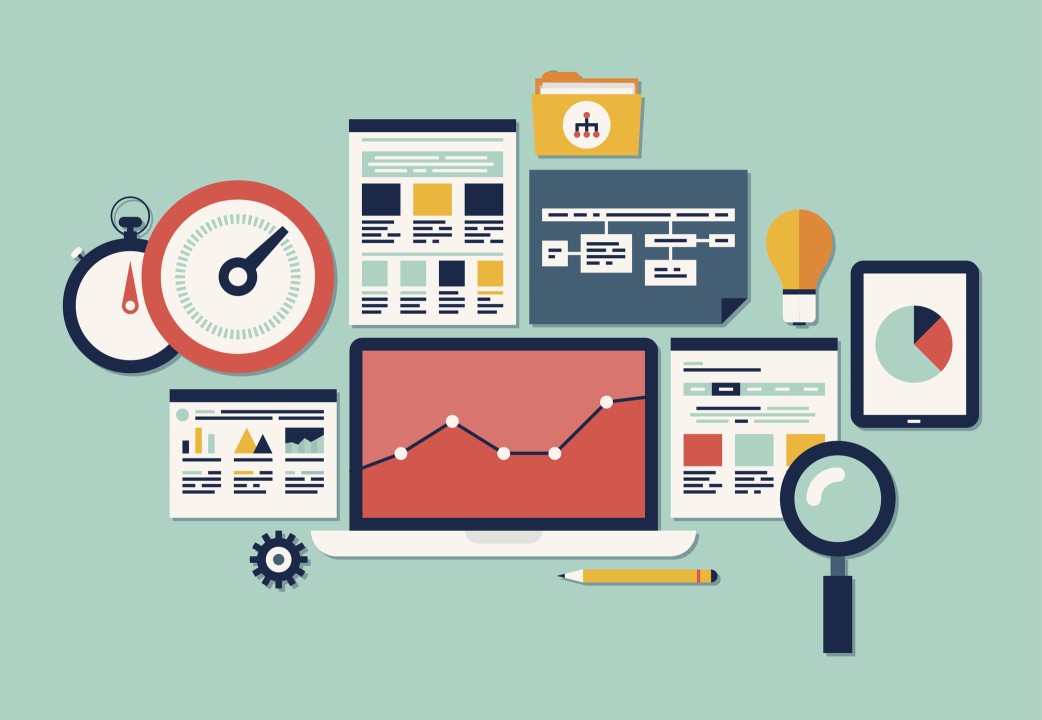

Social media analytics are rapidly progressing with the incorporation of cutting-edge technologies like artificial intelligence (AI) and machine learning (ML). Such advances offer predictive analytics, sentiment analysis, and consumer behavior insights and give businesses foresight into trends and patterns that affect them.
In this segment, we delve deeply into the social media analytics market trends in detail. Join us as we explore the intricate landscape of social media analytics and unravel the latest trends that are driving this dynamic industry forward. Let’s embark on this insightful journey together!
Table of Contents
Real-time data analytics have quickly emerged as a game-changer in modern business environments, providing businesses with instant insights needed for making smart and data-driven decisions that keep up with today’s increasingly fast-paced digital sphere. Real-time analytics makes business responsiveness swift. Businesses can respond promptly to ongoing trends, conversations, and shifts in consumer sentiment by monitoring real-time analytics of ongoing conversations or consumer sentiment changes that occur in real-time. With instant insights generated instantly available by gathering real-time analytics, it enables more agile decision-making crucial for survival in today’s fast digital landscape.
Visual recognition technologies within social media analytics have revolutionized how brands understand consumer behavior. These tools facilitate analysis of visual content such as images, videos, and visual posts which reveal invaluable insights – contributing significantly to market intelligence.
Sentiment analysis is rapidly expanding its role within social media analytics, helping businesses better gauge public sentiment analysis regarding brands, products, or campaigns on social media. Such analysis offers businesses insight into honed marketing strategies to enhance customer experiences while effectively maintaining brand reputations.
Influencer marketing’s impact is immense and modern analytics now evaluate its efficacy to help brands identify suitable influencers and assess ROI accurately.
At the forefront of analytics development lies data privacy and compliance; strict regulations such as GDPR and CCPA require social media analytics tools to adhere to data protection measures while prioritizing user privacy. As analytics technologies advance further, data protection becomes even more of an imperative.
Businesses are investing more resources into omnichannel analytics, with businesses seeking to collect data across various social media platforms and touchpoints and synthesize it for analysis. By doing this, omnichannel analytics offers businesses a more complete picture of customer interactions, preferences, and behaviors across channels – helping improve marketing strategies accordingly.
Customization of analytics tools to meet specific business requirements has gained prominence over recent years. Tailor-made solutions that offer customizable dashboards, metrics, and reporting features allow businesses to derive actionable insights that align with their unique objectives.
Social listening tools go beyond data collection; they enable active engagement between brands and audiences. Their enhanced functionality enables brands to not only track conversations in real-time but also interact directly with consumers to foster relationships or respond quickly to concerns that may arise.
Businesses have taken notice of this shift towards ethical analytics with their increased emphasis on sustainability metrics. Businesses use analytics to track and display their socially responsible efforts – matching up with consumer preferences for socially conscious brands.
AR and VR technologies have quickly made inroads into social media analytics, providing immersive experiences. Marketers use them to understand user interactions within immersive spaces – providing invaluable insight for marketing efforts.
Analytics tools have become indispensable tools for crisis management on social media. Businesses use them to quickly detect, evaluate, and respond to potential crises swiftly – protecting brand image while mitigating damage during challenging circumstances.
With mobile social media usage becoming ever-more prominent, mobile analytics have expanded significantly over time. Tools now focus on gathering insights related to user behaviors on mobile applications and browsing trends for optimized mobile consumption of content.
AI-powered chatbots are revolutionizing customer service analytics. By collecting and analyzing customer interactions and queries, these bots provide insights into user preferences and pain points – ultimately leading to enhanced service experiences for their users.
Quantum computing holds great promise to transform analytics. Boasting incredible computational power, quantum computing could open new frontiers in processing massive datasets while improving analytics capabilities exponentially.
User-generated content (UGC) analytics have recently gained popularity as companies recognize their power. Analyzing UGC is essential in understanding audience sentiments, preferences, and behaviors and provides invaluable insights for marketing strategies.
Ongoing algorithm changes across social media platforms require analytics tools that can quickly adjust. Tools providing insight into algorithm updates and their effects enable businesses to develop strategies with maximum reach and engagement potential.
Behavioral analytics have revolutionized marketing. By studying user behaviors, preferences, and interactions history businesses can tailor content and offerings on an individual basis to increase user experiences and deliver relevant communications at scale.
AIoT (Artificial Intelligence of Things) and big data have come together to revolutionize the analytics ecosystem. By streamlining collection and analysis from connected devices, this combination offers comprehensive insight for tailored marketing.
Ethical considerations in AI-driven analytics center around eliminating bias from data collection and analysis processes. Tools that incorporate fairness, accountability, and transparency principles ensure ethical methodologies within analytics methodologies.
Social media analytics present a dynamic landscape, demanding that businesses, along with any social media marketing agency, embrace emerging technologies, ethical methodologies, and personalized strategies to navigate this evolving terrain successfully. Staying ahead in this ever-shifting marketplace requires a proactive stance, with agencies and businesses collaborating to adapt and innovate in response to the changing dynamics of social media analytics.
Sign up to receive our email, delivering the latest stories straight to your inbox.
